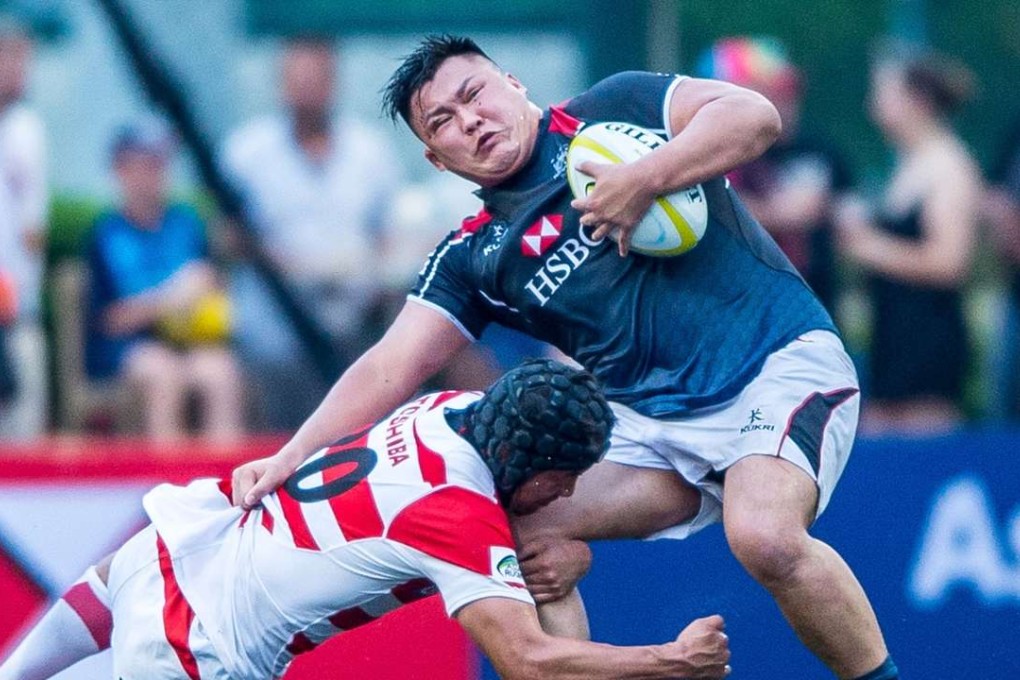Chinese trailblazer Alex Ng puts his rugby skills to the test against Japan
First cap against formidable Asian champions is a career highlight for 28-year-old prop

Alex Ng Wai-shing’s sporting journey has taken him from a soccer-playing schoolboy to the front row of the Hong Kong rugby team, becoming Hong Kong’s most capped Chinese player along the way.
On Saturday, Ng will record another milestone, breaking the record for games played since the 1997 handover to China, in the Asia Rugby Championship against Japan in Tokyo.
It is a massive achievement for the bustling prop and has coach Leigh Jones excited.
“I think it’s great for rugby and great for Chinese rugby in Hong Kong,” Jones said.
It will be Ng’s 42nd match, taking him past Pete Spizzerri for the most since ’97, with Dave Lewis’ overall benchmark of 55 caps next in his sights.
Not bad for a guy who only found himself in a rugby jersey by chance – plucked from his school soccer team in Scotland to make up the numbers.